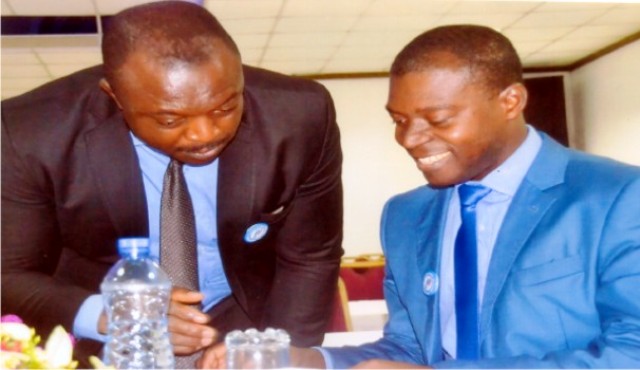Business
Economy: Varsity Don Blames Graft, Mono-Product

A lecturer at the Depart
ment of Economics at the University of Port Harcourt, Prof. Willy Okowa has said that over dependence on crude oil proceeds and systemic corruption are the two major factors that have affected Nigeria’s economy, 56 years after independence.
The University don in an interview with newsmen recently in Port Harcourt said Nigeria has drifted from a production economy to a consumption based one.
“From the end of the civil war, we felt that with oil money we could buy anything we want to buy, all over the world”, he said.
According to Okowa, that was where Nigeria miscalculated and had everything wrong.
He said the country’s attention was only focused towards oil and its corresponding wealth.
“That is were we got it wrong because our whole attention, the fabric of our society, was titled away from production into consumption”, he said.
According to him, there was a kind of scramble from many quarters to have a share of the oil wealth without minding the long-term consequences on the economy of the nation.
“Nigeria plus systemic corruption, plus indiscipline, is equal to Rwanda plus, Somalia plus Yugoslavia is equal to death” he enthused.
He stated that he published the above quote in 1994, even as he said it was unfortunate that the country was drifting towards what he wrote far back in 1994.
The UNIPORT Professor said one major step government can take to prevent what he described as the doomsday is for the Nigerian state to return crude oil back to the Niger Delta people, and correspondingly develop all other sectors of the economy.
“Once the Nigerian state took over the oil wells, it created what I call “Abdolistic caprism”.
Abdol was an Arabic legend who lived all his life thinking of how to make money without working.
He explained that the attitude of many Nigerians could be likened to the Arabic legend.
“Suddenly we no longer want to work and the price of oil has dropped and the government is trying to do diversification to no avail”, he lamented.
Okowa disclosed that every state in Nigeria has the capability to run its economy effectively by exploring and exploiting its mineral resources and also pay workers salaries as at when due.
“There is no state in Nigeria that does not have what it takes to pay salaries of its workers. “Agriculture is there, solid minerals and other God-given wealth are scattered all over the country”, he said.
He explained that in the past, he had raised the fundamental question of returning the oil wells to the Niger Delta as a solution to the economic problem of the country, so that the rest of the Nigerian people can go back to work.
Business
Agency Gives Insight Into Its Inspection, Monitoring Operations

Business
BVN Enrolments Rise 6% To 67.8m In 2025 — NIBSS

The Nigeria Inter-Bank Settlement System (NIBSS) has said that Bank Verification Number (BVN) enrolments rose by 6.8 per cent year-on-year to 67.8 million as at December 2025, up from 63.5 million recorded in the corresponding period of 2024.
In a statement published on its website, NIBSS attributed the growth to stronger policy enforcement by the Central Bank of Nigeria (CBN) and the expansion of diaspora enrolment initiatives.
NIBSS noted that the expansion reinforces the BVN system’s central role in Nigeria’s financial inclusion drive and digital identity framework.
Another major driver, the statement said, was the rollout of the Non-Resident Bank Verification Number (NRBVN) initiative, which allows Nigerians in the diaspora to obtain a BVN remotely without physical presence in the country.
A five-year analysis by NIBSS showed consistent growth in BVN enrolments, rising from 51.9 million in 2021 to 56.0 million in 2022, 60.1 million in 2023, 63.5 million in 2024 and 67.8 million by December 2025. The steady increase reflects stronger compliance with biometric identity requirements and improved coverage of the national banking identity system.
However, NIBSS noted that BVN enrolments still lag the total number of active bank accounts, which exceeded 320 million as of March 2025.
The gap, it explained, is largely due to multiple bank accounts linked to single BVNs, as well as customers yet to complete enrolment, despite the progress recorded.
Business
AFAN Unveils Plans To Boost Food Production In 2026
-

 News5 days ago
News5 days ago2026 Budget: FG Allocates N12.78bn For Census, NPC Vehicles
-

 Sports4 days ago
Sports4 days agoAFCON: Osimhen, Lookman Threaten Algeria’s Record
-

 Politics4 days ago
Politics4 days agoWike’s LGAs Tour Violates Electoral Laws — Sara-Igbe
-

 Politics4 days ago
Politics4 days agoRivers Political Crisis: PANDEF Urges Restraint, Mutual Forbearance
-

 Sports4 days ago
Sports4 days agoPalace ready To Sell Guehi For Right Price
-

 Sports4 days ago
Sports4 days agoArsenal must win trophies to leave legacy – Arteta
-

 Sports4 days ago
Sports4 days agoTottenham Captain Criticises Club’s Hierarchy
-

 Sports5 days ago
Sports5 days agoNPFL To Settle Feud between Remo Stars, Ikorodu City

